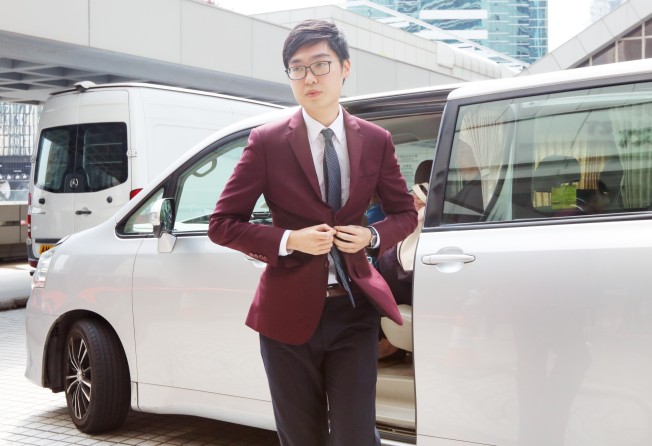Hong Kong localist mounts legal challenge after being barred from Legco polls
Lawyer for Andy Chan Ho-tin says ‘kafkaesque’ dismissal process went against freedom of thought and expression, and violated voters’ right to be represented

The election process that saw a Hong Kong independence advocate barred from running for the legislature last year amounted to a “Kafkaesque” trial that went against freedom of thought, of expression and the right to vote, a court heard on Tuesday.
Andy Chan Ho-tin, one of six localist candidates prevented from running in the Legislative Council polls in September, had his lawyers run the argument in his election petition hearing at the High Court, which began yesterday.
He asked the court to determine if the winners in the New Territories West constituency had been duly elected, and to declare their victories void if they had not.
The Hong Kong National Party convenor had refused to sign a newly-introduced, non-statutory declaration form that reinforced acknowledgement that Hong Kong was an inalienable part of China. He did, however, sign a statutory declaration that he would uphold the Basic Law.
The case deals with not only a candidate’s right to stand for election, but involves broader issues including freedom of expression, of thought and the right to be represented in the legislature, Gladys Li SC, counsel for Chan, said. Li argued that the meaning of “upholding the Basic Law” should not be understood narrowly.
“To uphold the Basic Law, you acknowledge the powers of the sovereign over Hong Kong ... but this does not preclude advocacy for change,” Li said. “After 50 years, who knows?”
Li said while the Sino-British Joint Declaration of 1984 stated the city’s capitalist system and way of life would remain unchanged for 50 years after the handover to China, the treaty was “silent” on the sovereignty issue beyond that time frame.
The activist was only running a “political campaign to persuade the sovereign [state]” to let go of Hong Kong, and his idea should be allowed to be put to the test in an election, she said.
The nation’s top legislative body, the National People’s Congress Standing Committee, in November issued an interpretation of a Basic Law article about oath-taking which stipulated public officers must “genuinely” pledge allegiance to Hong Kong under China. That decision effectively disqualified two elected, pro-independence lawmakers.
Li argued that the interpretation did not apply to Chan’s case, because it only covered oath-taking by legislators “when assuming office”, and not candidates running in an election.
The counsel also said the relevant ordinances did not give power to election officers to inquire into the “underlying intent” of a candidate’s declaration, or to make “pre-emptive” decisions to disqualify them on grounds other than those stated in the law, such as for criminal convictions.
“The electoral regime is mechanical – it is not supposed to be making complicated judgments and not suitable for a ... Kafkaesque-like trial,” she said.
The hearing continues today before Justice Thomas Au Hing-cheung.